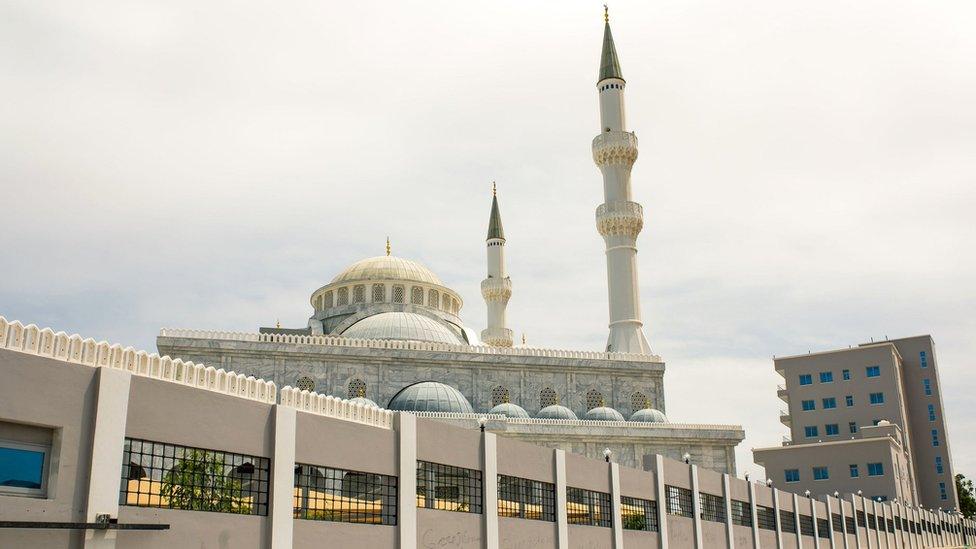Somalia media guide
- Published
This page is no longer being updated. It was last updated on 25 April 2023

The Ali Jimale mosque in Mogadishu
In Somalia, journalists regularly face harassment, arbitrary detention, suspension, fines, and threats of violence.
In 2020, the president signed amendments to the media law that included protections for journalists' rights but also featured vaguely worded provisions criminalizing the dissemination of "false information," and reports that conflict with the "national interest," according to Freedom House.
The law grants the Ministry of Information broad powers to regulate the media.
The Committee to Protect Journalists says that Somalia is "considered one of the most hostile environments for the press". It says the militant group Al-Shabab is suspected in the majority of media murders. Journalists and media outlets complain about intimidation at the hands of state security agencies.
Nevertheless, professionally-run media outlets have emerged - in particular, FM radios with no explicit factional links.
The TV and press sectors are weak and radio is the dominant medium.
Many listeners tune to Somali-language media based abroad, in particular the BBC Somali service. Somali satellite channels are a significant part of the TV scene.
Somalis abroad are active online but domestic web access is held back by poor infrastructure. There were 2 million internet users by December 2021, comprising 12% of the population. (Internetworldstats.com)
Twitter and Facebook are popular online resources. Islamists use social media for self-promotion while their opponents mount strong rebuttals.
In secessionist Somaliland, and also in Puntland which sees itself as part of the federal Somali state, the authorities maintain a tight hold on broadcasting.
Online
Shabelle Media Network, external - content in English
Dayniile, external - news website
Jowhar, external - news website
Mareeg, external - news website, articles in English
Hiiraan Online, external - news website, articles in English
Puntland Post, external - news website
Somaliland Sun, external - news website
Television
Somali National Television, external - state-run, from Mogadishu
Universal TV, external - London-based satellite station
Somaliland National TV (SLNTV), external - owned by Somaliland government
Somali Broadcasting Corporation (SBC), external - private, Puntland
Radio
Radio Mogadishu, external - federal government-run radio station
Radio Shabelle, external - leading private network; Mogadishu, Marka
Radio Banadir, external - private, Mogadishu
Radio Simba, external - private, Mogadishu
Radio Kulmiye, external - private, Mogadishu
Radio Andalus - franchise operated by Al-Shabab Islamist militants
Radio Hargeisa, external - owned by Somaliland government
Radio Gaalkacyo, external - affiliated to Puntland authorities